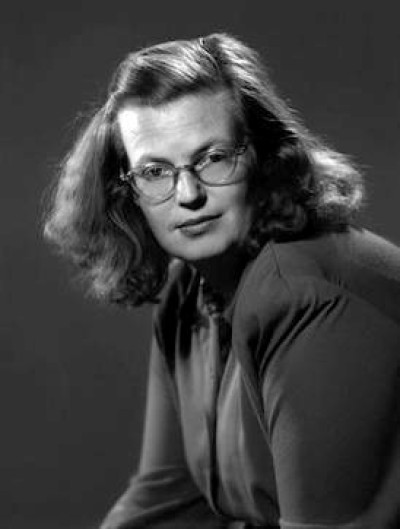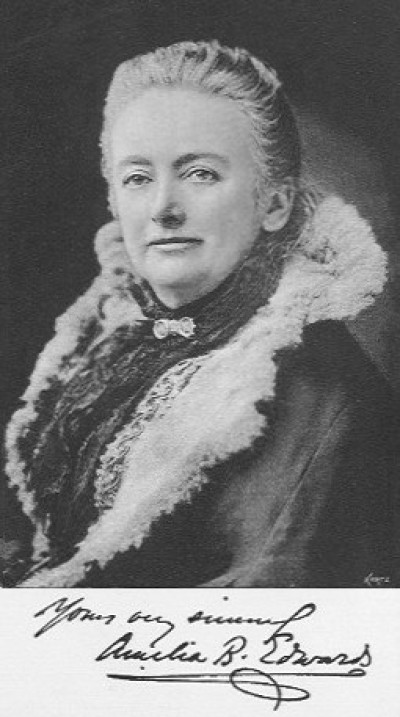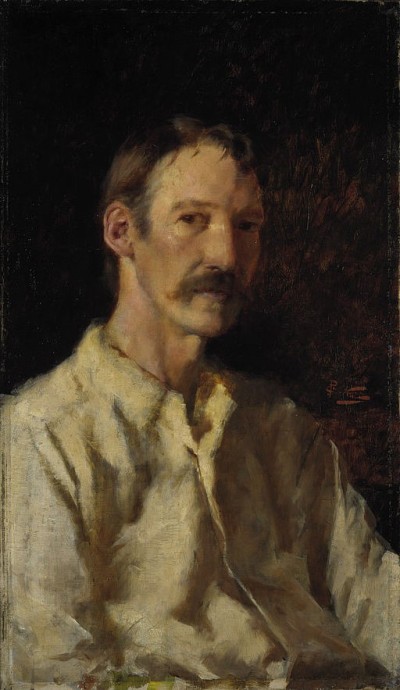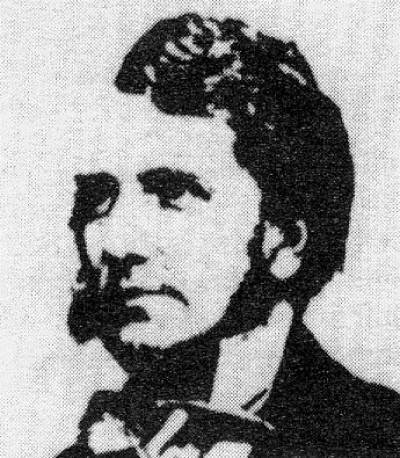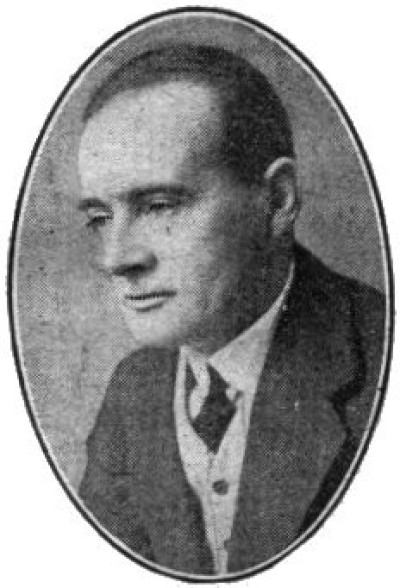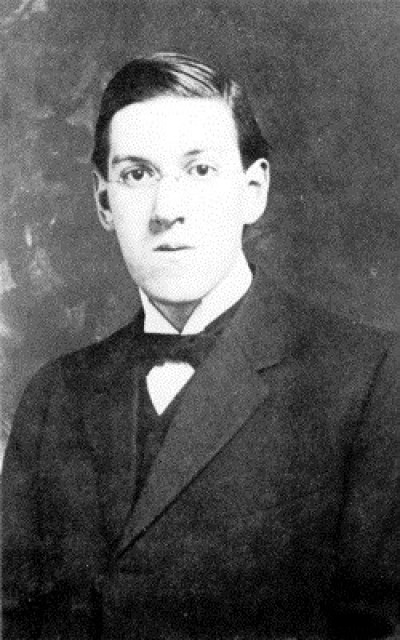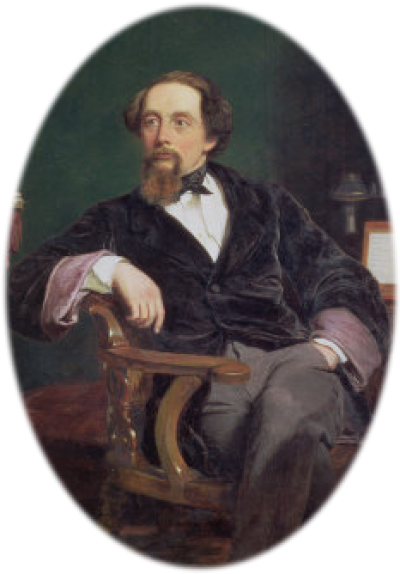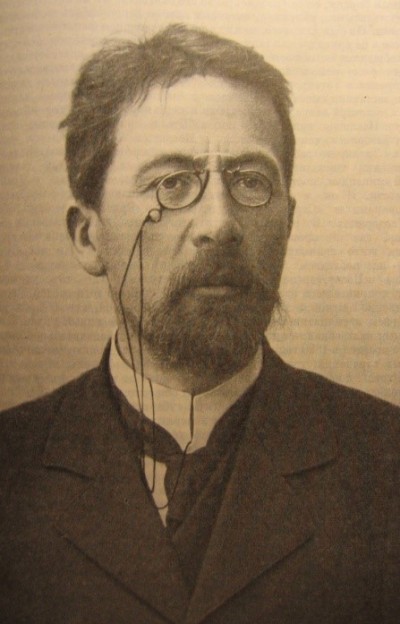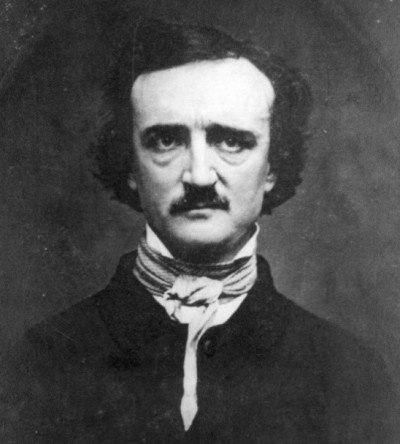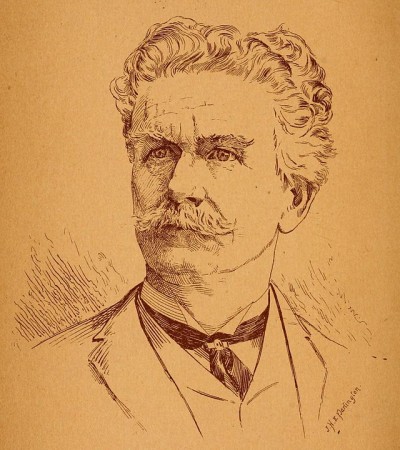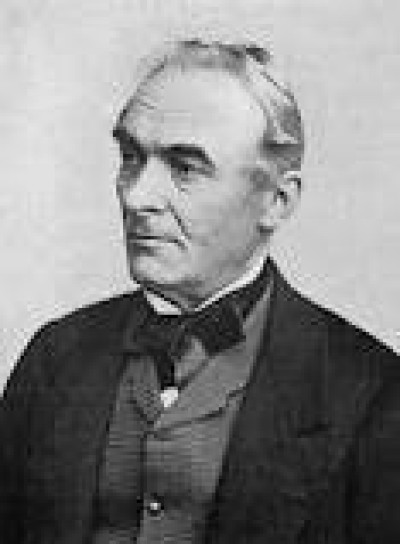Course description
The Lottery – Shirley Jackson
Shirley Jackson was one of the most important American writers of horror stories and novels in the twentieth century and, yet, she was a deeply unhappy and insecure woman. She married an academic and hated her role as a ‘faculty wife’. She never gave interviews and lived almost as a recluse.
Jackson was a heavy smoker and used prescription drugs to fight against depression and her weight problem. Increasingly, she drank to escape from her problems as well. This led her to early death at the age of forty-eight in 1965.
Despite her psychological and physical challenges, Jackson wrote some fine horror novels and stories right up to her death, including ‘The Haunting of Hill House’.
The Lottery
The morning of June 27th was clear and sunny, with the warmth of a summer day; the flowers were blooming and the grass was rich green. The people of the village began to gather in the square, between the post office and the bank, around ten o'clock; in some towns there were so many people that the lottery took two days and had to be started on June 26th, but in this village, where there were only about three hundred people, the whole lottery took less than two hours, so it could begin at ten o'clock in the morning and was finished in time for lunch.
The children arrived first, of course. School was over for the summer, and the feeling of freedom was still unfamiliar; they generally gathered together quietly for a while before they began to play and their talk was still about the classroom and the teacher, of books and homework. Bobby Martin had already filled his pockets with stones, and the other boys soon followed his example, choosing the roundest ones; Bobby and Harry Jones and Dickie Delacroix-- the villagers pronounced this name ‘Dellacroy’ --eventually made a great pile of stones in one corner of the square and guarded it against the other boys. The girls stood on one side, talking between themselves, looking over their shoulders; the youngest held the hands of their older brothers or sisters.
Soon the men began to gather, looking at their own children, speaking of planting and rain, tractors and taxes. They stood together, away from the pile of stones in the corner, and their jokes were quiet and they smiled, rather than laughed. The women, wearing faded dresses, came shortly after their men. They greeted one another and gossiped as they went to join their husbands. Soon the women, standing by their husbands, began to call to their children, but the children came reluctantly, after their parents called four or five times. Bobby Martin escaped his mother and ran, laughing, back to the pile of stones. His father spoke sharply, and Bobby came quickly and took his place between his father and his oldest brother.
The lottery was managed – like dances, the teen club and the Halloween program – by Mr. Summers, who had time and energy for village activities. He was a round-faced, laughing man and he ran the coal business, and people were sorry for him because he had no children and his wife was always shouting. When he arrived in the square, carrying the black wooden box, there was a murmur among the villagers, and he waved and called. "A little late today, friends." The postmaster, Mr. Graves, followed him, carrying a stool, which was put in the centre of the square and Mr. Summers set the black box down on it. The villagers stayed away, leaving a space between themselves and the stool and when Mr. Summers said, "Some of you fellows want to give me a hand?", there was hesitation before two men, Mr. Martin and his oldest son, Baxter, came forward to hold the box steady on the stool while Mr. Summers moved around the papers inside it.
The original equipment for the lottery was lost long ago, and the black box now on the stool had been used even before Old Man Warner, the oldest man in town, was born. Mr. Summers often spoke to the villagers about making a new box, but no-one liked to upset tradition. There was a story that the present box had been made with some pieces of the box that came before it, the one made when the first people settled to build a village here. Every year, after the lottery, Mr. Summers began talking again about a new box, but every year the subject was forgotten. The black box grew shabbier each year: by now it was no longer completely black but showed the original wood colour in some places.
Mr. Martin and his oldest son, Baxter, held the black box securely on the stool until Mr. Summers had moved the papers thoroughly with his hand. Because so much of the ritual was forgotten or ignored, Mr. Summers had been successful in using paper instead of the wood that had been used for generations. Wood, Mr. Summers had argued, had been fine when the village was tiny, but now that the population was more than three hundred and likely to keep on growing, it was necessary to use something that would fit more easily into the black box.
The night before the lottery, Mr. Summers and Mr. Graves made the slips of paper and put them in the box, and it was then taken to the safe of Mr. Summers' coal company and locked up until Mr. Summers was ready to take it to the square next morning. The rest of the year, the box was put way, sometimes one place, sometimes another; it had spent one year in Mr. Graves's farm and another year in the post office and sometimes it was put on a shelf in the grocer’s and left there.
There was a lot of fussing before Mr. Summers announced the lottery was open. There were the lists to make – of heads of families, members of each family. It was necessary for the official to speak to each person. Mr. Summers was very good at all this; in his clean white shirt and blue jeans with one hand resting carelessly on the black box, he seemed very proper and important as he talked endlessly to Mr. Graves and the Martins.
Just as Mr. Summers finally stopped talking and turned to the villagers, Mrs. Hutchinson came hurriedly along the path to the square, her sweater thrown over her shoulders, and stood at the back of the crowd.
"I forgot what day it was," she said to Mrs. Delacroix, who stood next to her, and they both laughed softly. "Thought my husband was out cutting wood," Mrs. Hutchinson went on, "and then I looked out the window and the kids were gone, and then I remembered it was the twenty-seventh and I came running."
She dried her hands on her apron, and Mrs. Delacroix said, "You're in time, though. They're still talking away up there."
Mrs. Hutchinson stood on tiptoe to see through the crowd and found her husband and children standing near the front. She touched Mrs. Delacroix on the arm as a goodbye and began to make her way through the crowd. The people separated to let her through: two or three people said, in voices just loud enough to be heard across the crowd,
"Here comes your woman, Hutchinson," and "Bill, she made it after all."
Mrs. Hutchinson reached her husband, and Mr. Summers, who had been waiting, said cheerfully, "I thought we were going to have to start without you, Tessie."
Mrs. Hutchinson said, grinning, "You wouldn't want me to leave my dishes in the sink, now, would you, Joe?," and soft laughter ran through the crowd as the people moved back into position after Mrs. Hutchinson's arrival.
"Well, now." Mr. Summers said soberly, "I guess we’d better start, get this over with, so that we can go back to work. Anybody not here?"
"Dunbar," several people said.
"Dunbar, Dunbar."
Mr. Summers looked at his list. "Clyde Dunbar," he said. "That's right. He's broken his leg, hasn't he? Who's drawing for him?"
"Me, I guess," a woman said, and Mr. Summers turned to look at her.
"Wife draws for her husband." Mr. Summers said. "Don't you have a grown boy to do it for you, Janey?"
Although Mr. Summers and everyone else in the village knew the answer perfectly well, it was the business of the official at the lottery to ask these questions formally. Mr. Summers waited with an expression of polite interest, while Mrs. Dunbar answered.
"Horace's not sixteen yet." Mrs. Dunbar said. "I guess I’ve got to fill in for the old man this year."
"Right." Mr. Summers said. He made a note on the list he was holding.
Then he asked, "Is the Watson boy drawing this year?" A tall boy in the crowd raised his hand. "Here," he said. "I'm drawing for my mother and me." He blinked his eyes nervously as several voices in the crowd said things like, "Good fellow, Jack." and "Glad to see your mother's got a man to do it."
"Well," Mr. Summers said, "I guess that's everyone. Did Old Man Warner make it?"
"Here," a voice said, and Mr. Summers nodded.
A sudden quiet fell on the crowd as Mr. Summers looked at the list.
"All ready?" he called. "Now, I'll read the names – heads of families first – and the men come up and take a paper out of the box. Keep the paper folded in your hand without looking at it until everyone has finished. Everything clear?"
The people had done it so many times that they only half listened to the directions: most of them were quiet, not looking around. Then Mr. Summers raised one hand high and said, "Adams." A man moved from the crowd and came forward. "Hi, Steve." Mr. Summers said and Mr. Adams said. "Hi, Joe."
They grinned at one another nervously. Then Mr. Adams reached into the black box and took out a folded paper. He held it firmly by one corner as he turned and went quickly back to his place in the crowd, where he stood a little away from his family, not looking down at his hand.
"Allen." Mr. Summers said. "Anderson.... Bentham."
"It seems like there's no time at all between lotteries anymore." Mrs. Delacroix said to Mrs. Graves in the back row. "Seems like we got through with the last one only last week."
"Time sure goes fast,” Mrs. Graves said.
"Clark.... Delacroix"
"There goes my old man," Mrs. Delacroix said. She held her breath while her husband went forward.
"Dunbar," Mr. Summers said, and Mrs. Dunbar went to the box while one of the women said, "Go on. Janey," and another said, "There she goes."
"We're next," Mrs. Graves said.
She watched while Mr. Graves came around from the side of the box, greeted Mr. Summers and chose a slip of paper from the box. By now, all through the crowd there were men holding the small folded papers in their large hands, turning them over nervously. Mrs. Dunbar and her two sons stood together, Mrs. Dunbar holding the slip of paper.
"Harburt.... Hutchinson." "Get up there, Bill," Mrs. Hutchinson said, and the people near her laughed.
"Jones."
"They say," Mr. Adams said to Old Man Warner, who stood next to him, "that over in the north village they're talking of giving up the lottery."
Old Man Warner complained, "Fools," he said. "Listening to the young, nothing's good enough for them. Next thing you know, they'll want to go back to living in caves. Nobody works anymore. There used to be a saying about 'Lottery in June, corn will come soon. The first thing you know, we'd all eat weeds and insects. There's always been a lottery," he added. "Bad enough to see young Joe Summers joking with everybody."
"Some places have already stopped lotteries." Mrs. Adams said.
"Nothing but trouble in that," Old Man Warner said. "Young fools."
"Martin."
And Bobby Martin watched his father go forward.
"Overdyke.... Percy."
"I wish they'd hurry," Mrs. Dunbar said to her older son. "I wish they'd hurry."
"They're almost finished," her son said.
"You get ready to run and tell Dad," Mrs. Dunbar said.
Mr. Summers called his own name and then stepped forward and chose a slip from the box. Then he called, "Warner."
"Seventy-seventh year I’ve been in the lottery," Old Man Warner said as he went through the crowd. "Seventy-seventh time."
"Watson" The tall boy came awkwardly through the crowd.
Someone said, "Don't be nervous, Jack," and Mr. Summers said, "Take your time, son."
"Zanini."
After that, there was a long pause, a breathless pause, until Mr. Summers, holding his slip of paper in the air, said, "All right, lads."
For a minute, no-one moved, and then all the slips of paper were opened.
Suddenly, all the women began to speak at once, saying. "Who is it?"
"Who's got it?"
"Is it the Dunbars?"
"Is it the Watsons?"
Then the voices began to say, "It's Hutchinson. It's Bill." "Bill Hutchinson's got it."
"Go tell your father," Mrs. Dunbar said to her older son.
People began to look around to see the Hutchinsons. Bill Hutchinson was standing quietly, staring down at the paper in his hand.
Suddenly, Tessie Hutchinson shouted to Mr. Summers.
"You didn't give him time enough to take any paper he wanted. I saw you. It wasn't fair!"
"Be a good sport, Tessie," Mrs. Delacroix called, and Mrs. Graves said, "All of us took the same chance."
"Shut up, Tessie," Bill Hutchinson said.
"Well, everyone," Mr. Summers said, "that was done pretty fast, and now we've got to hurry a little more to finish in time." He consulted his next list.
"Bill," he said, "you draw for the Hutchinson family. Have you got any other Hutchinson households?"
"There's Don and Eva," Mrs. Hutchinson yelled. "Make them take their chance!"
"Daughters draw with their husbands' families, Tessie," Mr. Summers said gently. "You know that as well as anyone else."
"It wasn't fair," Tessie said.
"I guess not, Joe." Bill Hutchinson said sadly. "My daughter draws with her husband's family. That's only fair. And I've got no other family except the kids."
"Then, you draw for the family," Mr. Summers explained, "and as far as drawing for households is concerned, that's you, too. Right?"
"Right," Bill Hutchinson said.
"How many kids, Bill?" Mr. Summers asked formally.
"Three," Bill Hutchinson said.
"There's Bill, Jr., and Nancy, and little Dave. And Tessie and me."
"All right, then," Mr. Summers said. "Harry, have you got their tickets back?"
Mr. Graves nodded and held up the slips of paper.
"Put them in the box, then," Mr. Summers directed. "Take Bill's and put it in."
"I think we ought to start again," Mrs. Hutchinson said, as quietly as she could. "I tell you it wasn't fair. You didn't give him time enough to choose. Everybody saw that."
Mr. Graves had chosen the five slips and put them in the box and he dropped all the papers except those onto the ground, where the breeze caught them and lifted them.
"Listen, everybody," Mrs. Hutchinson was saying to the people around her.
"Ready, Bill?" Mr. Summers asked and Bill Hutchinson, with one quick glance around at his wife and children, nodded.
"Remember," Mr. Summers said, "take the slips and keep them folded until each person has taken one. Harry, you help little Dave."
Mr. Graves took the hand of the little boy, who came happily with him up to the box. "Take a paper out of the box, Davy." Mr. Summers said.
Davy put his hand into the box and laughed.
"Take just one paper," Mr. Summers said. "Harry, you hold it for him."
Mr. Graves took the child's hand and removed the folded paper from the fist and held it while little Dave stood next to him and looked up at him wonderingly.
"Nancy next," Mr. Summers said.
Nancy was twelve, and her school friends breathed heavily as she went forward, and took a slip from the box.
"Bill, Jr.," Mr. Summers said, and Billy, his face red and his feet overlarge, nearly knocked the box over as he got a paper out.
"Tessie," Mr. Summers said. She hesitated for a minute, looking around, and then set her lips and went up to the box. She snatched a paper out and held it behind her.
"Bill," Mr. Summers said, and Bill Hutchinson reached into the box and felt around, bringing his hand out at last with the slip of paper in it.
The crowd was quiet. A girl whispered, "I hope it's not Nancy," and the sound of the whisper reached the edges of the crowd.
"It's not the way it used to be." Old Man Warner said clearly. "People ain't the way they used to be."
"All right," Mr. Summers said. "Open the papers. Harry, you open little Dave's." Mr. Graves opened the slip of paper and there was a general sigh through the crowd as he held it up and everyone could see that it was blank. Nancy and Bill. Jr. opened theirs at the same time and both smiled and laughed, turning around to the crowd and holding their slips of paper above their heads.
"Tessie," Mr. Summers said. There was a pause, and then Mr. Summers looked at Bill Hutchinson, and Bill unfolded his paper and showed it. It was blank.
"It's Tessie," Mr. Summers said, and his voice was quiet. "Show us her paper, Bill."
Bill Hutchinson went over to his wife and forced the slip of paper out of her hand. It had a black spot on it, the black spot Mr. Summers had made the night before with the heavy pencil in the coal company office. Bill Hutchinson held it up and there was movement in the crowd.
"All right, folks." Mr. Summers said. "Let's finish quickly."
Although the villagers had forgotten the ritual and lost the original black box, they still remembered to use stones. The pile of stones the boys had made earlier was ready; there were stones on the ground with the blowing slips of paper that had come out of the box. Mrs. Delacroix chose a stone so large she had to pick it up with both hands and turned to Mrs. Dunbar. "Come on," she said. "Hurry up."
Mrs. Dunbar had small stones in both hands, and she said, gasping for breath. "I can't run at all. You'll have to go ahead and I'll catch up with you."
The children had stones already. And someone gave little Davy Hutchinson a few pebbles.
Tessie Hutchinson was in the centre of a cleared space by now, and she held her hands out desperately as the villagers moved in on her. "It isn't fair," she said. A stone hit her on the side of the head. Old Man Warner was saying, "Come on, come on, everyone!" Steve Adams was in the front of the crowd of villagers, with Mrs. Graves beside him.
"It isn't fair. It isn't right," Mrs. Hutchinson screamed, and then they were on her

